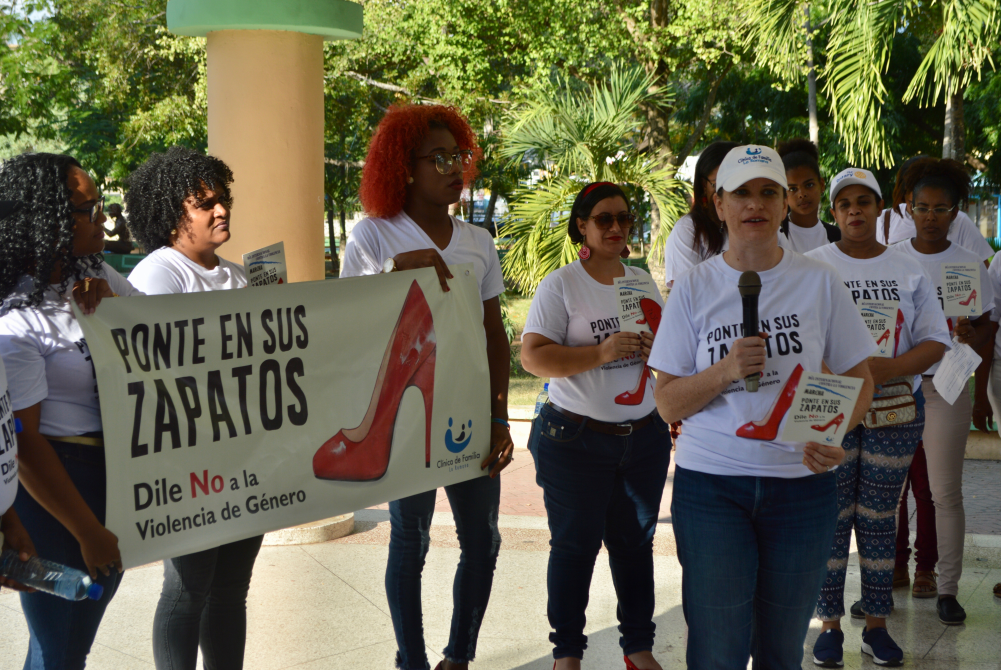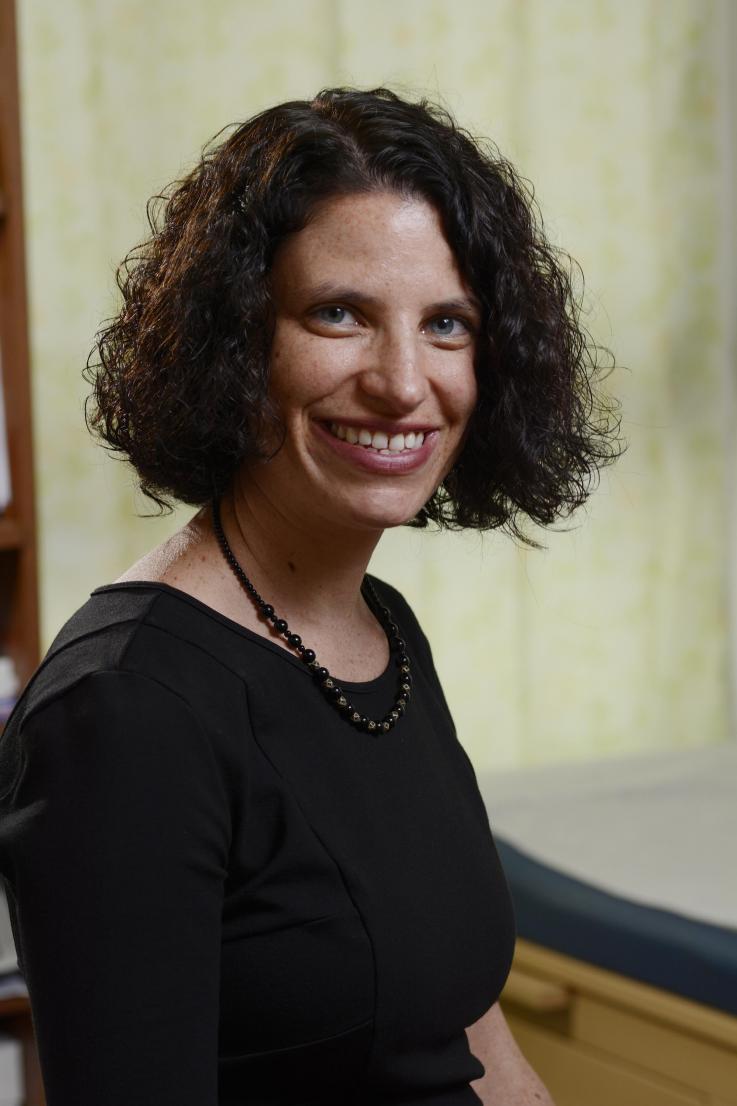Mina Halpern’s interest in global health issues began when she worked as a peer educator at Planned Parenthood while attending high school in Olympia. She says this experience sparked a passion for the field of HIV, eventually leading her to the University of Washington, where she graduated with a Master’s in Public Health in 2006.
Today, Halpern serves as the executive director of Clínica de Familia La Romana in La Romana, a medium-sized city in the eastern Dominican Republic. Clínica de Familia La Romana provides care to underserved populations, offering HIV care and treatment, sexually transmitted infection diagnosis and treatment, primary care, family planning, diagnostic services (imaging and laboratory), in addition to health services for teens at a second health center (prenatal care, family planning, pediatric care for babies of adolescent moms, gynecology services, HIV testing, and also a comprehensive sex education program in local schools). An initial trip to the Dominican Republic as part of her Watson Fellowship right after college started the path toward La Romana, opening Halpern’s eyes to the public health issues facing the Caribbean nation.
“The first time I was in the Dominican Republic in 2002 [right after college], there was no treatment available for people with HIV,” Halpern said. “At that time, there was really good treatment available in the U.S., people with HIV were living a long time, and in the Dominican Republic people were dying. We had medical treatment that was keeping people alive in rich countries, yet people in poor countries were dying. That’s when I became even more passionate about the issue and realized that it was an area I wanted to continue working on.”
The journey to her current position was jump-started at UW, where she laid the foundation of her career.

“I realized to get the necessary skills, I needed a Master’s in Public Health,” Halpern began. “I was part of the UW International Health Program, which pre-dates the Department of Global Health. That initial experience in the Dominican Republic, being here at a time when there was no treatment available, made me want to come back. My experiences and my education at UW helped prepared me, so I’m definitely grateful. I learned a ton about research methods and program management.”
The clinic has blossomed into a wide-ranging organization featuring two health centers and 125 staff members. While HIV is at the forefront of its efforts, the multidisciplinary staff allows the clinic to focus on multiple pressing issues. Some of these resources are allocated to programs for men who have sex with men, transgender women, sex workers, the country’s substantial population of rural sugar cane workers, many of whom are Haitian immigrants, and people with chronic diseases.
“We have the largest HIV clinic in the eastern part of the Dominican Republic,” Halpern revealed. “Our 2,000 clients with HIV, including both children and adults. They receive free medical care and antiretroviral treatment, in addition to psychosocial support services. We provide a range of services, including mental health counseling, home visits, support groups, client navigation, a social work department, and a summer camp for children with HIV.”
As Halpern clarified, providing services and reaching thousands of lives per year is only part of the mission. The other two core components of the mission are education and research. The education program is aimed at helping train and providing rotation and practicum opportunities for both Dominican and international health sciences students. In 2018, Clínica de Familia received its first UW Department of Global Health students. Since initiating the agreement with DGH, four UW medical students have participated in month-long global health rotations at the clinic. In addition to rotating with doctors in a clinical setting and health promoters in the community setting, the students also spearhead a public health projects, aimed at positively impacting the clinic´s programs and services.
“Two of the UW medical students who came earlier this year did a project aimed at determining how well we have been retaining HIV positive women in care after they give birth,” Halpern said. “We know their babies are coming in for care, but are they still coming in for care for themselves? The students then did qualitative interviews with those women who were not coming in for care, in order to figure out why they stopped coming and how we can encourage them to come back.”
Through tireless determination, the clinic has become a nationally recognized model for comprehensive HIV and STI care in the Dominican Republic. In fact, the clinic has grown so much since its inception twenty years ago, that it is now working towards the goal of constructing its own building, so as to ensure its long-term sustainability and increase the amount of services that are provided. More income generating activities will help reduce the non-profit clinic´s reliance on grant funding and donations. During her ten years at Clínica de Familia, Halpern has overseen substantial growth, in terms of budget, staffing and programming (all of which have more than doubled under her tenure as executive director). For the near future, she hopes to continue to guide the clinic´s continued growth, but also thinks about the clinic´s long term potential.
“I feel really strongly that the clinic must have a Dominican director in the future,” Halpern stated. “Part of my goal is for a local person to take over. My amazing leadership team is all Dominican so there are many candidates who are building their leadership and management skills, helping to prepare them for the role of executive director in the future.”
When looking back at her career path, Halpern is quick to point out that there’s still ample work to be done, while showing gratitude for the university that provided the early stepping stones. “I feel so lucky to be in a job where you get to see the change that you’re trying to make in the community on a daily basis, knowing that you are quite literally saving lives,” Halpern expressed. “I cannot imagine a more fulfilling or meaningful job. I think my education at UW was key in preparing me for the work that I’m doing today.”
